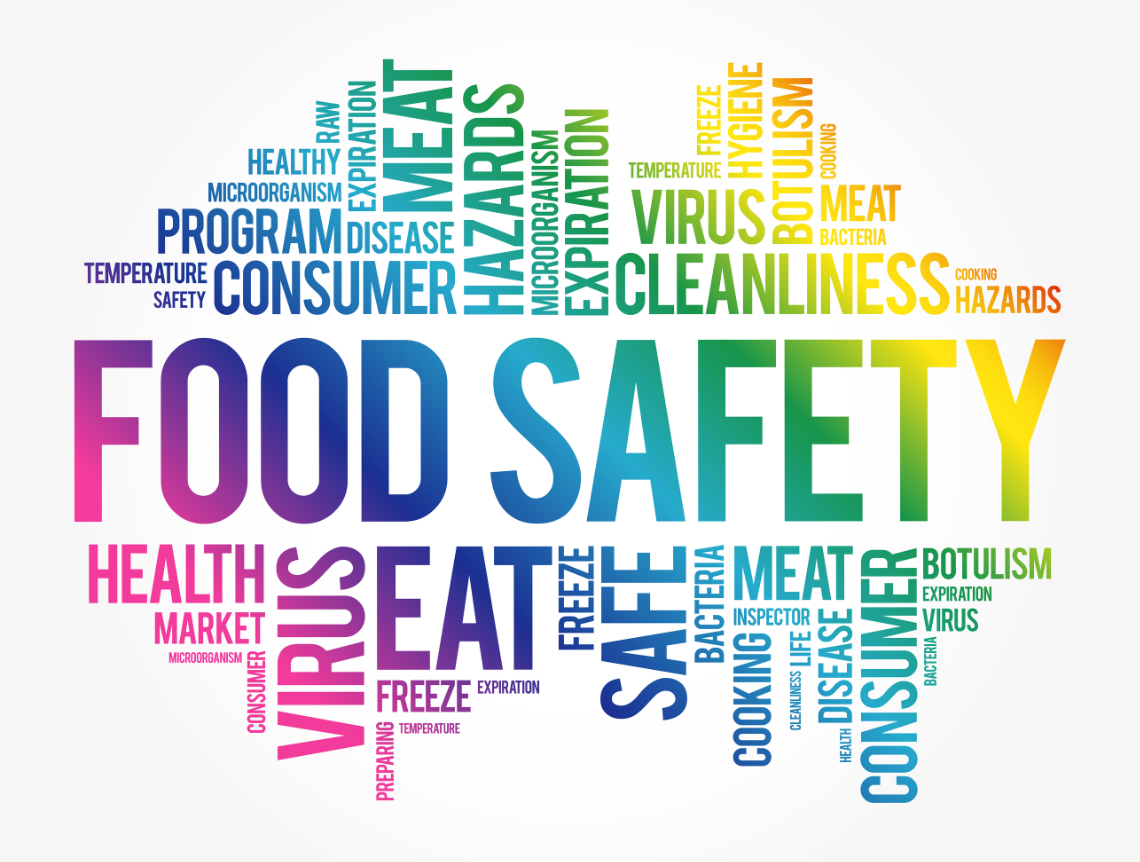Food Handling Safety: Food Safety Basics
Proper food handling safety means knowing how to purchase, store, and prepare food so that the chance of catching or spreading bacteria like E. coli and salmonella. Additionally, it's important to maintain certain best practices when it comes to how a kitchen is run. It's important to do things like using separate cutting boards, plates, and cooking utensils for raw meat. Anyone involved in buying, storing, cooking, or serving food needs to make sure they keep their hands washed before they touch raw or cooked food to maintain their health as well as the health of others.
Grocery Shopping
For the best food safety practices, do all shopping for non-perishable foods, then buy produce, and finally, shop for refrigerated items. Make sure meats are bagged separately from other items. If it will take an hour or more to get the groceries into the refrigerator freezer bring along an insulated bag or cooler so that they don't get too warm before they can be put away. Put all groceries away as soon as possible.
When shopping, always check expiration dates. Don't buy any product, but especially any meat, dairy, or fish product, that doesn't look right or smells strange. Open all cartons of eggs before buying them. The eggs should be clean and there shouldn't be any broken shells or even cracks in the eggs.
Frozen and Refrigerated Foods
Make sure the refrigerator is set to at least 40°F (5°C) and the freezer at 0°F (-18°C). It is okay for them to be set lower, but that's the absolute highest either appliance should be set at. Cool temperatures work to prevent bacteria from growing in the food stored inside of them. Appliances without built-in thermostats can have portable appliance thermostats sat inside them so that those using them can ensure they are set to a safe temperature.
Food handling safety requires that all food be put in the fridge or freezer as soon as possible. Where certain items are stored inside of them is also important. Eggs should be left in their carton and stored on a shelf. Many refrigerators come with a space for eggs in the door, but most doors don't stay cold enough to store eggs safely. Place any package of raw meat either in a plastic bag or on a plastic bag to prevent their juices from getting on other foods. Unopened packages of deli meat, sausages, and hot dogs can be stored safely for about fourteen days. Once the packages have been opened, they should be used in about five days.
Preparing Fresh Produce

All vegetables and fruits should be washed in running water. Even if they are going to be peeled, they still need to be rinsed first. Carrots, melons, cucumbers, and other types of firm produce can be scrubbed with a brush before slicing and serving. It's very important to wash melons before slicing them because they tend to have bacteria on their rind that can be carried by the knife to the flesh of the fruit. After washing produce, dry it with a paper towel or a clean kitchen towel. When preparing fruits and vegetables always cut away and dispose of any bruised or damaged parts before cooking or eating them.
Meat, Poultry, and Egg Product Safety
People typically want to be safe and hygienic. Sometimes that leads them to do things like washing raw chicken. Chicken, along with all other types of raw poultry and meat, should never be washed. Washing raw meat will cause germs to spread from the meat to various kitchen surfaces.
It's very important to learn to thaw and prepare meat and poultry safely. Frozen meat should always be de-thawed in either the microwave or refrigerator. It should never be thawed on a counter or in a sink. If the cook wants to marinate the meat, it should be done in the refrigerator and afterward, the marinade should be thrown away. Thawed meat needs to be cooked as quickly as possible.
All meats and eggs should be cooked to safe temperatures. Poultry and ground beef should be cooked until no pink remains in the meat. All meat should be cooked until any juice it expresses runs clear. Eggs also need to be thoroughly cooked. Don't serve dishes with uncooked eggs, like cookie dough unless pasteurized eggs were used.
Clean Up!

All surfaces in a kitchen should be regularly cleaned. Kitchen towels often spread bacteria, so change them out often. However, towels are a better choice than sponges when it comes to cleaning the kitchen. Countertops and other kitchen surfaces need to be washed with soapy, warm water and then dried with a clean towel. All surfaces, plus the garbage disposal, should be sanitized from time to time. Pots, pans, plates, cutting boards, and utensils should either be hand-washed in hot water with lots of soap or be washed in a dishwasher. Any cutting board that develops grooves should be disposed of and replaced because bacteria can hide in grooves, nicks, and other blemishes.
It's also important to treat leftovers appropriately. All food should be refrigerated as soon as possible after cooking. Food left out for more than two hours should be thrown away. Leftovers stored in the refrigerator should be eaten within four days. After four days, they should be thrown away as they are no longer safe to eat. It's vital to regularly clean out the refrigerator to dispose of expired food or leftovers that have been in there too long. The inside and outside of the refrigerator should also be cleaned regularly.
Additional Food Safety Resources






